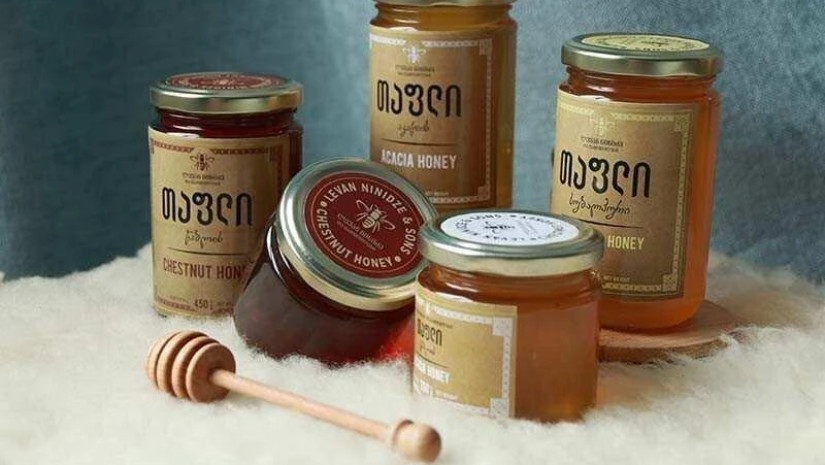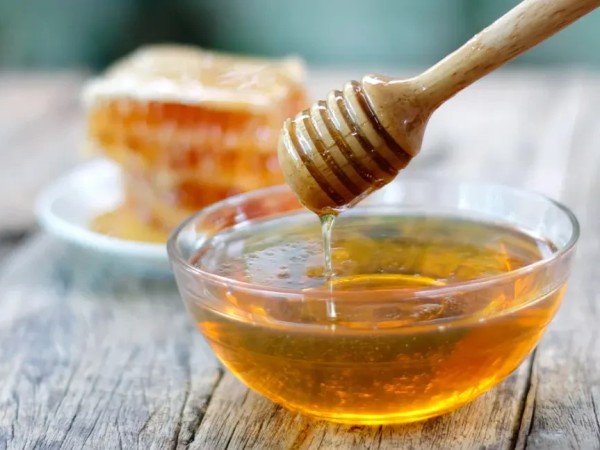Honey exports from Georgia exceeded 21 tonnes in 2020, the growth was more than 200% y-o-y.
According to the International Financial Corporation, more than 10 tonnes of Georgian honey was sent to Italy. The honey is produced by the company “Levan Ninidze and His Sons”.
“Apart from becoming a motivation for honey producers and exporters to explore export opportunities, the deal also contributed to a record amount of honey exported from Georgia for the first time”, the IFC notes.
According to the IFC, a local export company, Agro Factory, approached Ninidze, one of the project beneficiaries, in November 2020.
“Around that time, the IFC Georgia Agribusiness Competitiveness Project, implemented in partnership with Sweden’s government agency for development cooperation, SIDA, engaged with the country’s public and private sectors to help boost agricultural exports. The first step was to help ensure business compliance with the Deep and Comprehensive Free Trade Area Agreement with the EU. In collaboration with the Ministry of Environment Protection and Agriculture, the beekeeping sector was chosen for the project’s focus. Being a low-risk animal-origin product with a short value chain, honey was likely to comply with the EU food safety regulations within a feasible time frame.
Apart from becoming a motivation for honey producers and exporters to explore export opportunities, the deal also contributed to a record amount of honey exported from Georgia. In 2020, honey exports reached over 21 tonnes, according to the National Statistics Office of Georgia, an increase of more than 200% from the previous year”, IFC notes.
Honey producer Givi Ninidze is optimistic and deeply believes that more European consumers will be interested in buying Georgian honey.
"Beekeeping is accompanied by a feeling of constant expectation and hope. What attracts me the most in this activity is that a large part of my hopes and expectations are sensible,” said Givi Ninidze.
According to IFC, although the legal framework with the European Union allowed exports from Georgia, volumes of honey exports to Europe remained low. One of the major barriers was inconsistent safety due to poor beekeeping practices, especially unnecessary application of veterinary pharmaceuticals. More than half of honey samples were contaminated with antibiotic residues in 2017-18, according to a honey monitoring program conducted by Georgia’s National Food Agency.
Around that time, the IFC Georgia Agribusiness Competitiveness Project, implemented in partnership with Sweden’s government agency for development cooperation, SIDA, engaged with the country’s public and private sectors to help boost agricultural exports. The first step was to help ensure business compliance with the Deep and Comprehensive Free Trade Area Agreement with the EU. In collaboration with the Ministry of Environment Protection and Agriculture, the beekeeping sector was chosen for the project’s focus. Being a low-risk animal-origin product with a short value chain, honey was likely to comply with the EU food safety regulations within a feasible time frame.
IFC started by supporting beekeepers with training and advisory support, from apiary management to layout planning for a new processing facility. In a combined effort, IFC and Georgia’s National Food Agency also worked to increase awareness among beekeepers. Gradually, the share of contaminated honey dropped significantly – from 56% in 2017 to 105 in 2019, benefitting not only exports but also domestic consumers.
IFC also worked to help increase the capacity of inspectors and the State Laboratory of Agriculture to test honey for regulated residues. As a result, in 2020, the National Food Agency commissioned the State Laboratory of Agriculture to test honey samples, instead of a lab outside the country that was used in previous years at both higher cost and extended processing times.
In close collaboration with the Ministry of Environment Protection and Agriculture, IFC continues to work on updating Georgian food safety legislation and requirements for the beekeeping and honey processing sector. The project is part of IFC’s regional program that has helped Ukraine and Moldova, among others, increase their agricultural potential.













